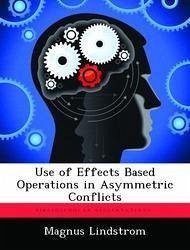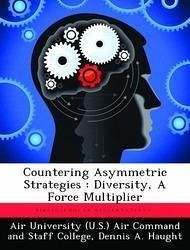Nicht lieferbar

Use of Effects Based Operations in Asymmetric Conflicts
Versandkostenfrei!
Nicht lieferbar
Effects-based operations (EBO) increase the effectiveness of military operations against an asymmetric adversary to some extent. The increased effectiveness is achieved through an increased understanding of the enemy and the effects of military actions. However, EBO promises more than it can deliver. The criticism of EBO is focused on three areas: (1) the possibility to predict indirect effects, particularly concerning the will of a population and the decisions leaders make; (2) there is no explanation of how the different national powers are supposed to work together in order to achieve a com...
Effects-based operations (EBO) increase the effectiveness of military operations against an asymmetric adversary to some extent. The increased effectiveness is achieved through an increased understanding of the enemy and the effects of military actions. However, EBO promises more than it can deliver. The criticism of EBO is focused on three areas: (1) the possibility to predict indirect effects, particularly concerning the will of a population and the decisions leaders make; (2) there is no explanation of how the different national powers are supposed to work together in order to achieve a common goal; and most importantly, (3) the lack of substantive methodology used to reach the ultimate goal of EBO: behavioral change of the adversary. Positive behavioral change cannot be achieved through military means, and EBO does not address this problem in a sufficient way. Two different conflicts are used as case studies: Operation Motorman in Northern Ireland, 1972, and The Cambodian Incursion, 1970. These conflicts were chosen because they show how the use of military means can radicalize a population and because they also show how tactical and political actions can affect each other, and thus, the outcome a conflict. This work has been selected by scholars as being culturally important, and is part of the knowledge base of civilization as we know it. This work was reproduced from the original artifact, and remains as true to the original work as possible. Therefore, you will see the original copyright references, library stamps (as most of these works have been housed in our most important libraries around the world), and other notations in the work. This work is in the public domain in the United States of America, and possibly other nations. Within the United States, you may freely copy and distribute this work, as no entity (individual or corporate) has a copyright on the body of the work. As a reproduction of a historical artifact, this work may contain missing or blurred pages, poor pictures, errant marks, etc. Scholars believe, and we concur, that this work is important enough to be preserved, reproduced, and made generally available to the public. We appreciate your support of the preservation process, and thank you for being an important part of keeping this knowledge alive and relevant.









